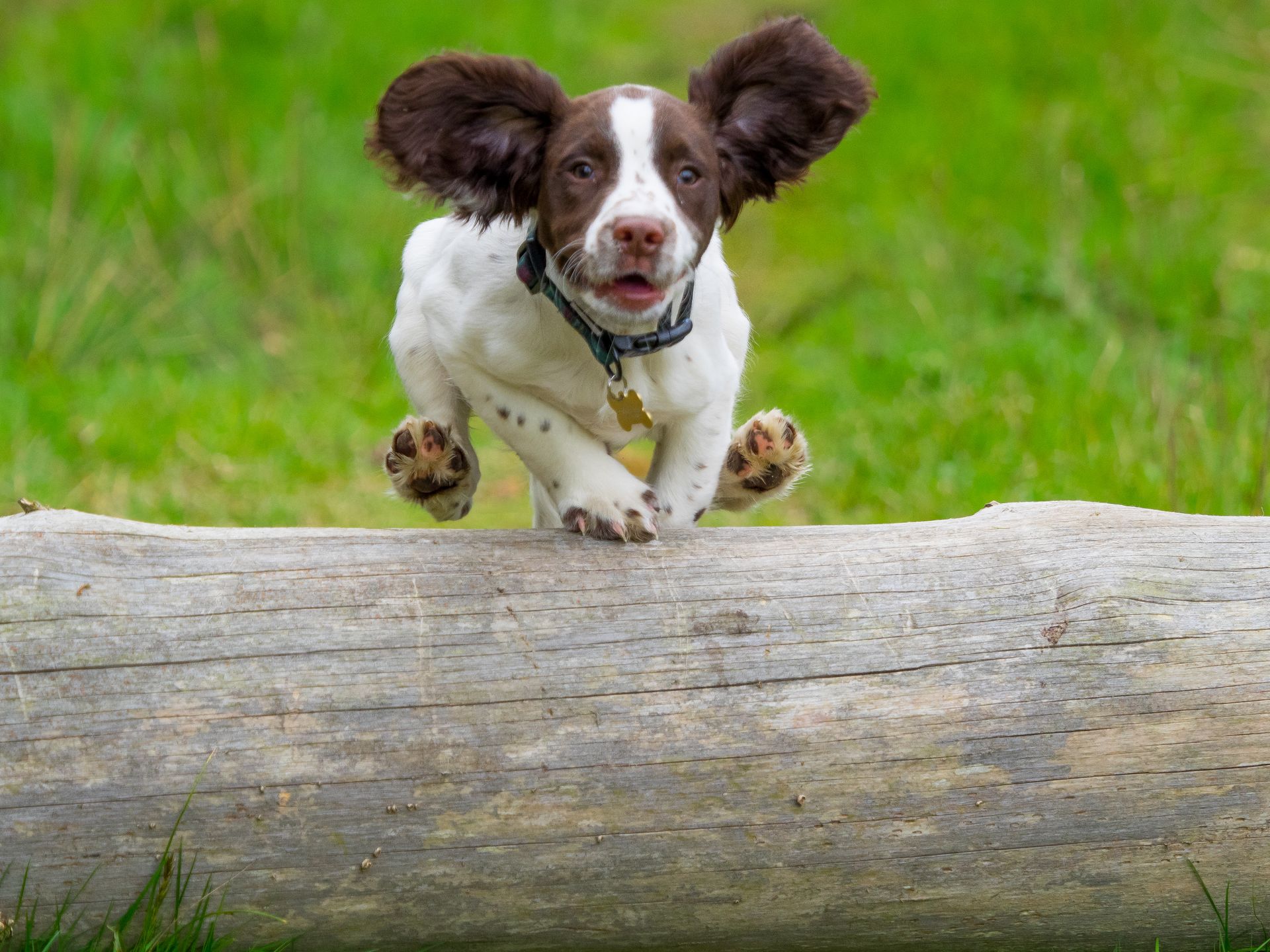Dog Training in the UK: 12 Helpful Tips to Get Started
Dogs Welcome Here | Dog Training Guide • January 14, 2024
Dog Training in the UK: 12 Helpful Tips to Get Started

Training your dog in the UK is an enriching experience that fosters a strong bond between you and your furry companion. Here's a comprehensive guide coupled with various resources to assist you in your dog training journey:
- Early Socialization: Early socialization is crucial for a well-rounded and adaptable dog. The process involves exposing your puppy to various environments, people, animals, sounds, and experiences during their critical developmental period. This helps prevent fear and aggression while promoting confidence and sociability. The Kennel Club not only emphasizes the importance of early socialization but also provides resources on how to properly socialize your puppy, including tips on introducing them to new experiences gradually and positively.
- Basic Obedience Training: Teaching basic commands like sit, stay, come, and heel establishes the foundation of obedience. The Dogs Trust offers comprehensive guidance on effective command teaching techniques. It emphasizes positive reinforcement methods, breaking down commands into manageable steps, and gradually increasing difficulty levels. Consistency, patience, and repetition are key elements in mastering these commands.
- Positive Reinforcement: Positive reinforcement is a cornerstone of successful dog training. The use of rewards like treats, verbal praise, and toys reinforces desired behaviors and helps dogs understand what is expected of them. The Blue Cross provides detailed guidance on employing positive reinforcement techniques effectively, emphasizing the timing of rewards and the importance of consistency in rewarding desired behaviors.
- Consistency and Patience: Consistency is crucial in reinforcing positive behaviors and avoiding confusion for your dog. Dogs Trust advises on the significance of maintaining consistency during training sessions, ensuring that everyone in the household uses the same commands and techniques. Patience is equally important; dogs learn at different paces, so patience and persistence are essential in achieving desired results.
- Avoiding Punishment-Based Techniques: Studies strongly discourage the use of punishment-based training methods. Punishment can lead to fear, anxiety, and aggression in dogs, damaging the bond between you and your pet. Positive reinforcement, on the other hand, strengthens the relationship and encourages desired behaviors.
- Professional Training Classes: Enrolling your dog in certified training classes can offer structured learning and socialization opportunities. The Association of Pet Dog Trainers (APDT) in the UK provides a directory of accredited trainers, ensuring that you find a qualified professional who uses positive and ethical training methods.
- Proper Equipment: Choosing the right training tools, such as collars, harnesses, and leads, is essential for your dog's comfort and safety. The Kennel Club offers guidance on selecting suitable equipment based on your dog's breed, size, and training needs, ensuring that you have the right gear for effective training sessions.
- Regular Practice: Consistent and regular training sessions are crucial for reinforcing learned behaviors. The Dogs Trust provides a structured training plan for teaching basic commands, emphasizing short but frequent sessions to maintain your dog's focus and motivation.
- Addressing Behavioral Issues: Behavioral problems in dogs require professional guidance. The Royal Veterinary College offers consultations with behavior specialists who can assess and provide tailored solutions to address specific issues like separation anxiety, aggression, or excessive barking.
- Exercise and Mental Stimulation: Dogs require both physical exercise and mental stimulation for their overall well-being. The Dogs Trust offers tips on providing adequate mental stimulation, such as interactive toys, puzzles, and engaging activities, alongside regular exercise to keep your dog mentally sharp and physically healthy.
- Understanding Legal Responsibilities: As a responsible dog owner in the UK, understanding legal obligations, including microchipping, leash laws, and control orders, is crucial. The UK government website provides comprehensive information on dog ownership laws to ensure you comply with regulations and maintain a safe environment for your pet and the community.
- Breed-Specific Training: Different dog breeds have varying temperaments, energy levels, and specific training needs. The Kennel Club provides breed-specific information and tailored guidance on training to address breed-specific tendencies, helping owners understand their dog's unique requirements for effective training and management.
Conclusion
Each dog is unique, so be flexible in your training methods. The UK boasts various resources, including local dog clubs, training centers, and online communities, providing tailored support and advice. Seek professional assistance when facing specific challenges or behavioural issues. Remember, the ultimate goal of training is to establish a harmonious and enjoyable relationship between you and your beloved canine companion.


